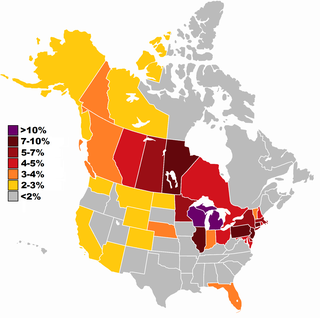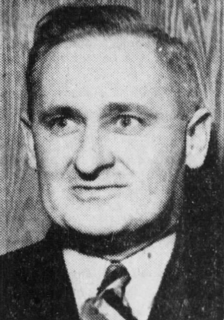
Sir John Sparrow David Thompson was a Canadian lawyer, judge and politician who served as the fourth prime minister of Canada from 1892 until his death. He had previously been fifth premier of Nova Scotia for a brief period in 1882.

Sir Robert Laird Borden was a Canadian lawyer and politician who served as the eighth prime minister of Canada from 1911 to 1920. He is best known for his leadership of Canada during World War I.
Charles Hazlitt Cahan was a Canadian lawyer, newspaper editor, businessman, and provincial and federal politician.

The Royal Canadian Legion is a non-profit Canadian veterans' organization founded in 1925. Members include people who served in the military, Royal Canadian Mounted Police, provincial or municipal police, Royal Canadian Air, Army and Sea Cadets and direct relatives.

The Anglican Church of Canada is the province of the Anglican Communion in Canada. The official French-language name is l'Église anglicane du Canada. In 2022, the Anglican Church counted 294,931 members on parish rolls in 1,978 congregations, organized into 1,498 parishes. The 2021 Canadian census counted 1,134,315 self-identified Anglicans, making the Anglican Church the third-largest Canadian church after the Catholic Church and the United Church of Canada.

Sports in Canada consist of a wide variety of games. The roots of organized sports in Canada date back to the 1770s, culminating in the development and popularization of the major professional games of ice hockey, lacrosse, basketball, baseball, soccer, football and cricket. Canada's official national sports are ice hockey and lacrosse. Golf, baseball, tennis, skiing, ringette, badminton, cricket, volleyball, cycling, swimming, bowling, rugby union, canoeing, curling, squash, and the study of martial arts are widely enjoyed at the youth and amateur levels. Great achievements in Canadian sports are recognized by Canada's Sports Hall of Fame, while the Lou Marsh Trophy is awarded annually to Canada's top athlete by a panel of journalists. There are numerous other Sports Halls of Fame in Canada.

Polish Canadians are citizens of Canada with Polish ancestry, and Poles who immigrated to Canada from abroad. At the 2016 Census, there were 1,106,585 Canadians who claimed full or partial Polish heritage.
The National Campus and Community Radio Association/L'Association nationale des radios étudiantes et communautaires (NCRA/ANREC) is a non-profit organization of campus radio and community radio stations in Canada.
The New Democratic Party won thirteen seats in the 2000 federal election, emerging as the fourth-largest party in the House of Commons of Canada. Many of the party's candidates have their own biography pages; information on others may be found here.
The Professional Institute of the Public Service of Canada (PIPSC) is the largest multi-professional labour union in Canada, representing some 60,000 public service professionals employed at the federal and some provincial and territorial levels of government. It was founded in 1920 to protect the interests of professional public employees. The institute became a bargaining agent following the implementation of the Public Service Staff Relations Act in 1967. A 100th anniversary history of the union, by labour historian Jason Russell, was published in 2020. It is the bargaining agent for more than 41 knowledge-based groups and negotiates with 27 different employers in six different jurisdictions. The institute serves its members with approximately 140 full-time staff in its national office in Ottawa, and regional offices in Halifax, Montreal, Toronto, Winnipeg, Edmonton, and Vancouver. A 100th anniversary history of the union, by labour historian Jason Russell, was published in 2020 under the title Leading Progress: The Professional Institute of the Public Service of Canada, 1920-2020.

The Catholic Women's League (CWL) is a Roman Catholic lay organisation founded in 1906 by Margaret Fletcher. Originally intended to bring together Catholic women in England, the organization has grown, and may be found in numerous Commonwealth countries. It is especially flourishing in Canada, Australia, New Zealand and Hong Kong. Membership consists mainly of women who are members of the Roman Catholic Church, and who work together to promote Catholic values and to carry out volunteer and charitable work.
Expenditures by federal and provincial organizations on scientific research and development accounted for about 10% of all such spending in Canada in 2006. These organizations are active in natural and social science research, engineering research, industrial research and medical research.
The National Union of Students, Union nationale des étudiants (NUS/UNE) was a national university and college student organization in Canada from November 1972 to May 1981. The Union represented over 350,000 students in post secondary education. Donald Thompson, Sidney Shugarman, Pierre Ouellette, Myron Tiechko, Daniel Palmer, Dawn Hassett, Doyle Brown and Ian Boothe are listed as the first directors.
The National Council of Women of Canada is a Canadian advocacy organization based in Ottawa, Ontario, aimed at improving conditions for women, families, and communities. A federation of nationally-organized societies of men and women and local and provincial councils of women, it is the Canadian member of the International Council of Women (ICW). The Council has concerned itself in areas including women's suffrage, immigration, health care, education, mass media, the environment, and many others. Formed on October 27, 1893, in Toronto, Ontario, it is one of the oldest advocacy organizations in the country. Lady Aberdeen was elected the first president of the National Council of Women of Canada in 1893. Prominent Council leaders included Lady Gzowski, Dr. Augusta Stowe-Gullen, and Adelaide Hoodless.
The Canadian Home Builders' Association (CHBA) is a not-for-profit organization representing residential construction and related industry firms in Canada. It was founded in 1943, following closely the adoption of the National Building Code of Canada in 1941, and today claims a membership of over 9000. The organization represents member interests to local, provincial and federal governments, and develops positions and solutions to support technical currency and solution pathways for members. Member companies include home builders and renovators, land developers, trade contractors, product and material manufacturers, building product suppliers, lending institutions, insurance providers, and service professionals.

Ultimate Canada is a not-for-profit organization that serves as the governing body of the sport of Ultimate in Canada. It runs the Canadian Ultimate Championships (CUC) and Canadian University Ultimate Championship (CUUC) series.

The Ukrainian Canadian Congress is a nonprofit umbrella organization of Ukrainian-Canadian political, cultural, and religious organizations founded in 1940.
The Canadian Handicrafts Guild was an association of Canadians involved in handicrafts that was founded in Montreal in 1906. At first the goal was to preserve and market traditional home crafts that were seen as being at risk of dying out. Demand for high quality products and a shift towards more "professional" craftspeople and modern designs placed stress on the organization. In 1967 the provincial branches became autonomous, and subsequently evolved separately. At the national level the Guild was merged with the Canadian Craftsman's Association in 1974 to form the Canadian Crafts Council, now the Canadian Crafts Federation.

Katherine Angelina Hughes was a Canadian journalist, author, archivist, and political activist. She founded the Catholic Indian Association in 1901 and was the secretary of the Catholic Women's League of Canada. She was the first provincial archivist for Alberta. As a journalist, Hughes worked for the Montréal Daily Star and the Edmonton Bulletin.

Robert Norman Dawe was a Canadian sports executive. He originated as an ice hockey referee for minor ice hockey games in Verdun, Quebec, before becoming involved in the administrative aspect of sports. He was a member of the local YMCA executive, served as secretary of the Verdun Playgrounds Commission from 1923 to 1948, and organized the Verdun Hockey Board. He served as a member of the Quebec Amateur Hockey Association (QAHA) executive committee for 23 seasons, and helped establish a provincial referee's board in 1936. In Montreal and Verdun, he was involved in girls' fastpitch softball. He served as the Montreal Ladies' Major Softball League president from 1940 to 1945, then was president of the Verdun Ladies' Softball League from 1945 to 1947. He began organizing Canadian football in 1945, when he established the Verdun Juvenile Football League and served as president.











